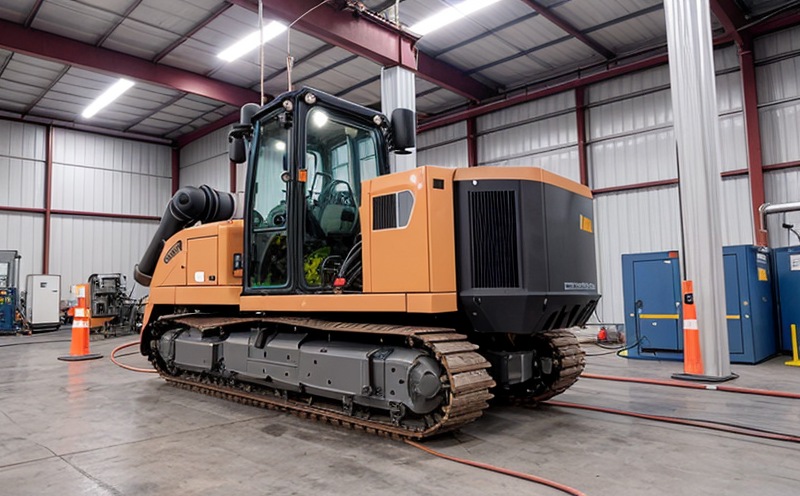
-
Industrial Equipment Certification-
Testing for Advanced Industrial Equipment-
Testing for Industrial Equipment with Advanced Sensors
We provide comprehensive solutions designed to help our clients mitigate risks, enhance performance, and excel in key areas such as quality, health & safety, environmental sustainability, and social responsibility.
Discover
For many years, our organization has been operating successfully, boasting modern laboratories that meet international standards. These laboratories are equipped with the latest technology devices and equipment, and we have built a strong team of experienced and trained personnel to operate them.
DiscoverWelcome to Eurolab, your partner in pioneering solutions that encompass every facet of life. We are committed to delivering comprehensive Assurance, Testing, Inspection, and Certification services, empowering our global clientele with the ultimate confidence in their products and processes.
Discover
-
Industrial Equipment Certification-
Testing for Advanced Industrial Equipment-
Testing for Industrial Equipment with Advanced SensorsTesting for Industrial Equipment with Advanced Sensors
The industrial sector relies heavily on advanced sensors to ensure that equipment operates efficiently and effectively. As manufacturing processes become increasingly complex and technology-driven, the need for reliable testing methods has grown exponentially. Advanced sensors play a vital role in this process, providing real-time data and insights that can be used to optimize performance, predict maintenance needs, and prevent costly downtime.
Benefits of Testing with Advanced Sensors
The use of advanced sensors in industrial equipment testing offers numerous benefits, including:
Manufacturing: Advanced sensors can help manufacturers optimize production processes, reduce downtime, and improve product quality.
Oil and gas: Advanced sensors can detect leaks, monitor pressure levels, and predict maintenance needs in oil and gas equipment.
Aerospace: Advanced sensors can ensure the reliability and performance of critical systems in aircraft and spacecraft.
2. How do advanced sensors help reduce downtime?
Predictive maintenance: Advanced sensors enable manufacturers to schedule maintenance at optimal times, reducing unexpected shutdowns.
Real-time monitoring: Advanced sensors provide real-time data on equipment performance, allowing for quick response to any issues that arise.
3. Can advanced sensors be used in conjunction with traditional testing methods?
Yes: Advanced sensors can complement traditional testing methods by providing more accurate and comprehensive insights.
4. What are some common challenges when implementing advanced sensor technology?
Integration issues: Ensuring seamless integration with existing systems can be a challenge, but many manufacturers offer specialized support and services.
5. Are advanced sensors easy to install and maintain?
Yes: Many advanced sensors come with user-friendly interfaces and minimal maintenance requirements.
By leveraging advanced sensor technology, manufacturers can improve efficiency, reduce costs, and enhance safety in their operations. As the industrial sector continues to evolve, the importance of reliable testing methods will only continue to grow.

Pharmaceutical Compliance
Pharmaceutical compliance refers to the adherence of pharmaceutical companies and organizations to l...

Product and Retail Standards
Product and Retail Standards: Ensuring Quality and Safety for Consumers In todays competitive marke...

NEBS and Telecommunication Standards
Network Equipment Building System (NEBS) and Telecommunication Standards The Network Equipment Bu...

Consumer Product Safety
Consumer Product Safety: Protecting Consumers from Harmful Products As a consumer, you have the rig...

Military Equipment Standards
Military Equipment Standards: Ensuring Effectiveness and Safety The use of military equipment is a ...

Industrial Equipment Certification
Industrial equipment certification is a critical process that ensures industrial equipment meets spe...

Environmental Impact Assessment
Environmental Impact Assessment: A Comprehensive Guide Environmental Impact Assessment (EIA) is a c...

Electromechanical Safety Certification
Electromechanical Safety Certification: Ensuring Compliance and Protecting Lives In todays intercon...

Healthcare and Medical Devices
The Evolution of Healthcare and Medical Devices: Trends, Innovations, and Challenges The healthcare...

Battery Testing and Safety
Battery Testing and Safety: A Comprehensive Guide As technology continues to advance, battery-power...

Electrical and Electromagnetic Testing
Electrical and Electromagnetic Testing: A Comprehensive Guide Introduction Electrical and electrom...

Transportation and Logistics Certification
Transportation and Logistics Certification: A Comprehensive Guide The transportation and logistics ...

Fire Safety and Prevention Standards
Fire Safety and Prevention Standards: Protecting Lives and Property Fire safety and prevention stan...

Lighting and Optical Device Testing
Lighting and Optical Device Testing: Ensuring Performance and Safety Lighting and optical devices a...

Automotive Compliance and Certification
Automotive Compliance and Certification: Ensuring Safety and Efficiency The automotive industry is ...

Construction and Engineering Compliance
Construction and Engineering Compliance: Ensuring Safety, Quality, and Regulatory Adherence In the ...

Food Safety and Testing
Food Safety and Testing: Ensuring the Quality of Our Food As consumers, we expect our food to be sa...

Environmental Simulation Testing
Environmental Simulation Testing: A Comprehensive Guide In todays world, where technology is rapidl...

Renewable Energy Testing and Standards
Renewable Energy Testing and Standards: Ensuring a Sustainable Future The world is rapidly transiti...

Pressure Vessels and Installations Testing
Pressure Vessels and Installations Testing Pressure vessels are a critical component of various ind...

IT and Data Center Certification
IT and Data Center Certification: Understanding the Importance and Benefits The field of Informatio...

Energy and Sustainability Standards
In today’s rapidly evolving world, businesses face increasing pressure to meet global energy a...

Cosmetic Product Testing
The Complex World of Cosmetic Product Testing The cosmetics industry is a multi-billion-dollar ma...

Aviation and Aerospace Testing
Aviation and Aerospace Testing: Ensuring Safety and Efficiency The aviation and aerospace industr...

Trade and Government Regulations
Trade and government regulations play a vital role in shaping the global economy. These regulations ...

Hospitality and Tourism Certification
Hospitality and Tourism Certification: Unlocking Opportunities in the Industry The hospitality and ...

Chemical Safety and Certification
Chemical safety and certification are critical in ensuring the safe management of products and proce...

Agricultural Equipment Certification
Agricultural equipment certification is a process that ensures agricultural machinery meets specific...

MDR Testing and Compliance
MDR Testing and Compliance: A Comprehensive Guide The Medical Device Regulation (MDR) is a comprehe...

Railway Industry Compliance
Railway Industry Compliance: Ensuring Safety and Efficiency The railway industry is a critical comp...